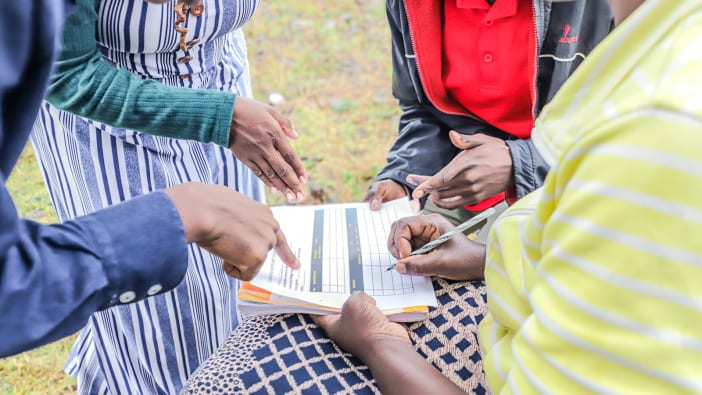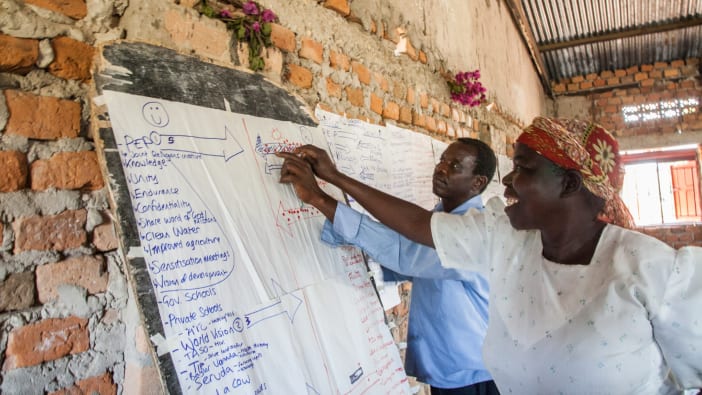- Ask one participant to begin improvising a scene. They can either create a scene about anything they choose, or the facilitator can ask them to create a scene around a particular topic, such as violence, power, child birth or sickness. When another participant recognises the scene they shout ‘Freeze!’. The scene is frozen.
- The second participant now enters the scene. At a signal from the facilitator, the two players now continue the improvisation.
- After a short time, the facilitator can freeze the scene again and ask ‘What does this scene need?’ or ‘What is missing from this scene?’ They invite suggestions from the rest of the group.
- Ask participants to add another character to the scene.
- Ask the character their name, who they are and how they relate to the other characters.
- Repeat this process until the scene is complete.
This exercise is designed to highlight issues for further discussion within the group. The activity might then be developed by the group into a play which presents a problem associated with a particular issue.
Using this exercise with orphans in a children’s home…
Once the facilitator has established a good, trusting relationship with the children, they can ask for a volunteer to begin to act out a scene about life in the children’s home. The child begins – perhaps acting out the first meal in the home. A second child recognises that experience and shouts ‘Freeze!’ and then joins in as a second character – maybe another child in the home – and the activity continues. Experiences relating to life in the children’s home are then highlighted. A sensitive facilitator can help the children to discuss these issues. The children may then decide to develop the scene into a short play, deciding which sections to include and which to leave out. They might then perform it to people involved in the children’s home, such as social workers, carers, and teachers. Since the play is based on a communal story about a general issue relevant to most participants, there is no personal agenda.
After the performance, the audience can ask the children questions about the play. They could also participate in re-doing the play, this time including themselves or another professional who they believe might make a difference to the situation. In this way, possible solutions to highlighted problems associated with child care can be acted out, allowing for discussion with everyone involved.
Adapted by Claire Lacey from Project Artpad by J McCarthy and K Galvao (2002), University of Manchester, UK.









